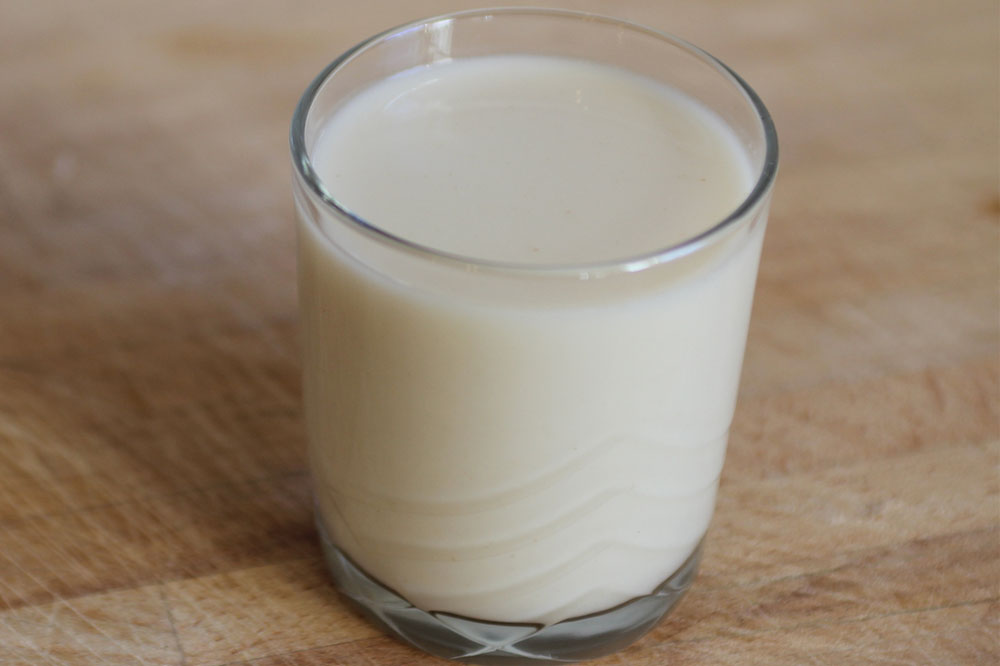7 Foods That May Worsen Eosinophilic Esophagitis Symptoms

People with eosinophilic esophagitis (EoE) undergo inflammation in their esophagus, a food pipe tract, as it connects the mouth to the stomach. This inflammation is caused by the rapid and aggressive growth of eosinophils, a kind of white blood cell, in the lining of the esophagus. Specific triggers can worsen its symptoms in individuals, certain foods being one of them. To prevent this, here are some EoE food items one must avoid:
Milk
Cow’s milk contains specific proteins that can trigger inflammation and allergies in people with eosinophilic esophagitis. When such people consume milk, the subsequent allergic reaction caused due to these proteins can speed up the growth of eosinophils in the inner lining of their food pipe. This, in turn, worsens symptoms such as pain, difficulty in swallowing meals, and, in many cases, frequent episodes of vomiting.
Due to its components, such as casein, lactoalbumin, and lactoglobulin, milk makes eosinophilic growth more rampant in patients. However, certain research studies have found that eliminating milk and other dairy products such as yogurt, ice cream, butter, buttermilk, artificial cream/cream, condensed milk, evaporated milk, margarine, ice cream, sour cream, some salad creams, mayonnaise, and cheese from one’s daily meals result in a tangible improvement in terms of symptoms in up to 34 percent of EoE cases.
Milk is a major nutritional source, so replacing it outright can be challenging. However, people with EoE can substitute milk for coconut, hemp, oat, rice, dairy-free yogurts, cheeses, and coconut milk products.
So, before making extensive changes to one’s daily meals, it is advisable to consult a healthcare professional.
Eggs
Another major food trigger of eosinophilic esophagitis is eggs, mayonnaise, or meringue. The foods to avoid list includes baked food such as cakes, pastries, and puddings, as these are highly likely to contain eggs as one of their key ingredients. Eggs contain several problematic (from an EoE perspective) components, such as Albumin, Gobulin, and Lecithin, known to set off an immune system response that leads to esophagus inflammation as digestive problems in people with EoE. Additionally, egg whites contain proteins called ovomucoids, a significant trigger of EoE flare-ups.
Like milk, eggs are major protein sources and are often inseparable from most people’s daily breakfast. To replace eggs from one’s meals, either a quarter cup of applesauce, a quarter cup of mashed bananas, or a tablespoon of ground flax with three tablespoons of water, or a teaspoon of baking soda with a tablespoon of vinegar, or two tablespoons of arrowroot powder with three tablespoons of water can be used.
While these foods may not directly compensate for the nutritional deficit caused by the removal of eggs from one’s meals, they will keep the chronic immune disease that is EoE at bay for longer.
Pasta
All kinds of pasta are not wrong for people with EoE. However, the main trigger element in pasta is wheat. Wheat contains gluten, another massive cause of flare-ups. One must avoid bulgar, einkorn, emmer, durum, farina, matzoh, spelt, semolina, triticale, and Kamut to avoid such scenarios. In addition, one can consume gluten-free foods made primarily from rice, tapioca, and potato as a substitute. Gluten-free pasta is also an excellent alternative to its wheat-based version.
Other alternate foods include arrowroot, amaranth, barley, beans, corn, legumes, buckwheat, gluten-free oats, rice, rye, tapioca, and quinoa.
Tofu
Foods containing soy are also among the six main foods that trigger EoE issues. The other five are milk, eggs, certain fish, wheat, and nuts. Tofu, soy sauce, edamame, and miso are loaded with soy, making them foods to avoid for people with EoE.
Additionally, plant-based meat replacements, such as veggie burners and products including textured vegetable protein, must be avoided. However, soy-based foods are also not the easiest to digest as they contain certain proteins that are hard to break down and exacerbate rapid eosinophilic growth in a person’s food pipe.
One can consume many alternative foods to rid their daily meals of soy-based items. Some replacements include soy lecithin and refined soyabean oil, two things that contain varying amounts of soy, but healthcare experts tend to greenlight them for consumption by people with EoE. Another alternative element is coconut aminos.
Peanuts
Nuts of all kinds are bad from an EoE perspective. Like milk and eggs, nuts, such as peanuts, walnuts, hazelnuts, and almonds, are a staple food/snack for many nationwide. However, peanuts (and any food containing nut milk, nut extracts, peanut oil, or nut meal) contain proteins that cause highly flagrant inflammation in the consumer’s esophagus. This protein also tends to trigger immune responses in people with EoE. Such a response then results in a swarm of eosinophils developing and growing along the inner walls of their esophagus.
Instead of peanuts and tree nuts, one can consume foods such as pine nuts, macadamia, heat-pressed peanut oil (three of the main exceptions in this case), coconut and its products, pumpkin seeds, sesame seeds, and sunflower seeds, and spread sunflower seeds.
Shellfish
Most kinds of fish, including shellfish, shrimp, crayfish, lobster, crab, oysters, mussels, and salmon, are also on the avoidable foods list for people suffering from EoE. Fish is mainly known for its ultra-nutritive, but its component proteins cause a rapid rise in inflammation instances in EoE patients.
Instead of shellfish, one can consume heat-pressed peanut oil, coconut milk, sunflower, sesame, and pumpkin seeds. Additionally, low-fat proteins, such as poultry, are a good fish alternative.
White bread
White bread, like pasta, is another primary source of wheat and gluten; therefore, consuming it is generally not advisable for long-term EoE patients.
Conclusion
Always follow a well-balanced meal plan and maintain a food journal to track your meals. This lets you determine which substitute works best for you and improves your EoE symptoms. In case of any confusion, always consult your healthcare professional before adding food items to your meals.







